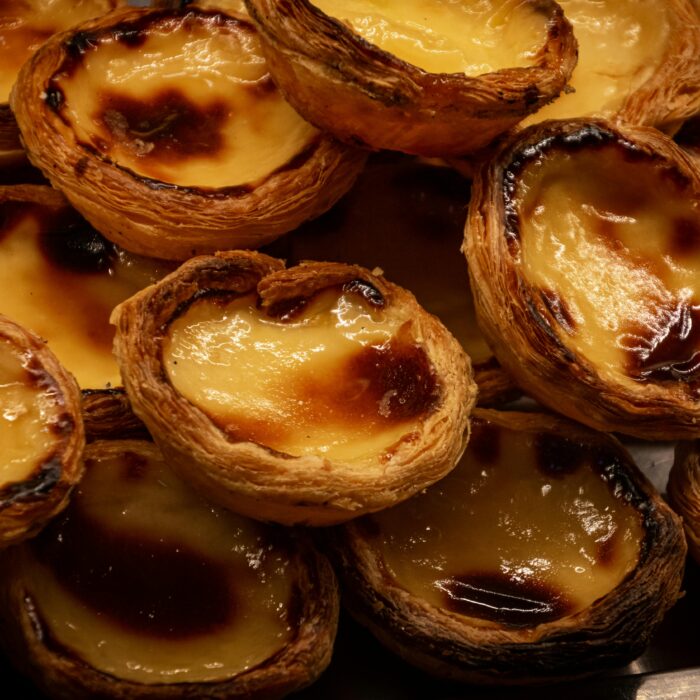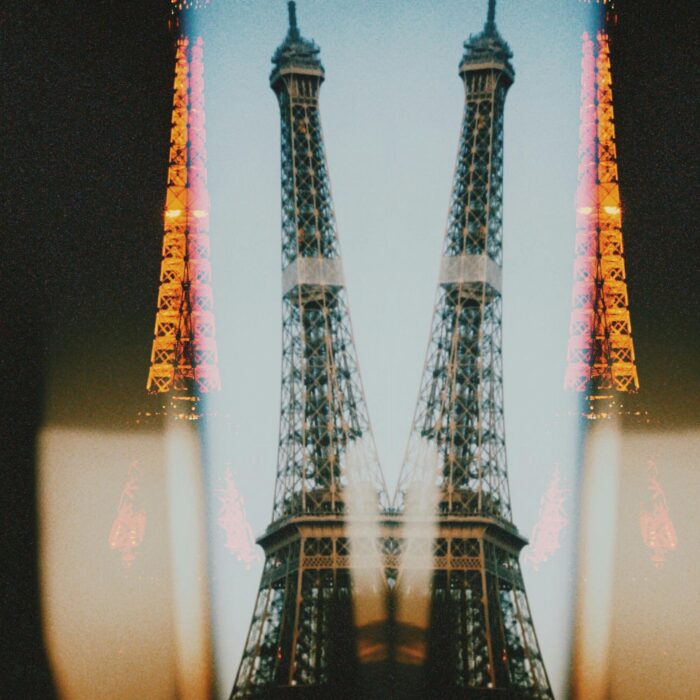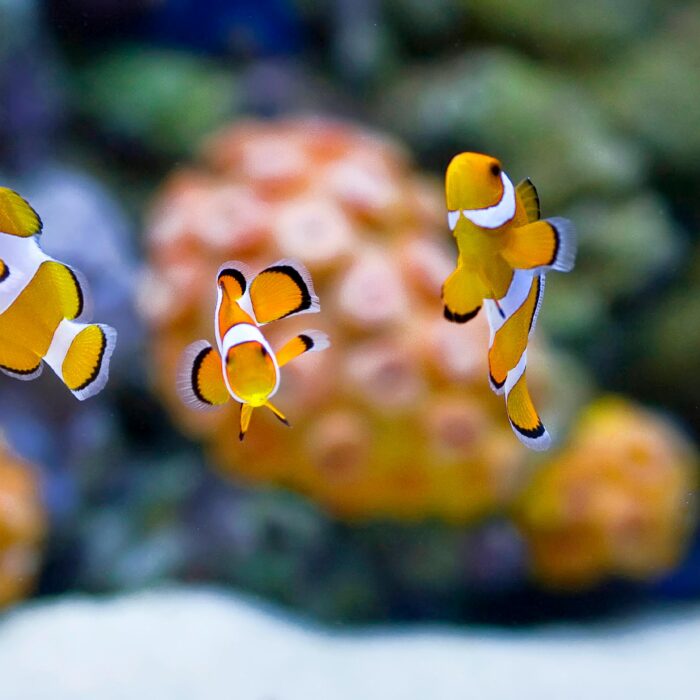You have no items in your cart. Want to get some nice things?
Go shopping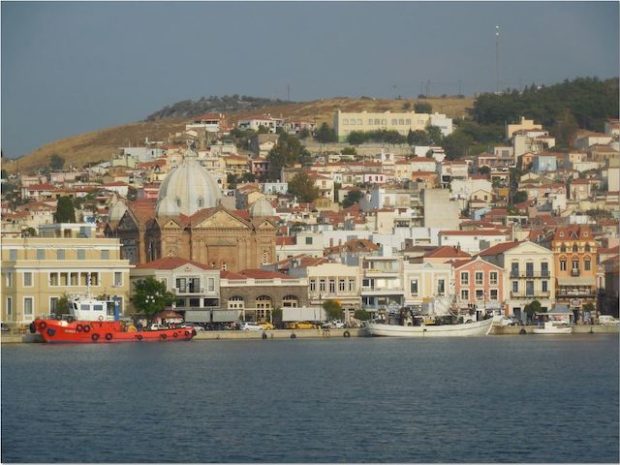
The waves are rougher since this morning. Not just raggedy white caps on the crests, but deep swells and great splashes that the tourists try to capture (often in vain) on their camera-phones. A few get drenched.
Deep lovely waves. Sharp definitions to the swells. Much motion, such motion moves me emotionally. Building rhythm. Wonderful rhythm. Muscular sympathy. Splash-like joy. Lusty intake. Loving exhalation. Kind, embracing. Sea-mighty. Mediterranean. Sea of Dreams.
I came, thinking to sit on the shadowy side of the fortezza in Rethymno, but of course that side is now on the other side. The “wine dark” sea of Homer’s is aqua actually, a light aqua wine, proving (?) no Homer am I. I have this idea of acclimating in Crete before going to work on Lesvos. Not sure how that will go.
Rough seas, as I say. Imagining the refugees today. Would they dare, would they know, would the smugglers stay silent about the high waves? Rushing in, rocks not giving way, at least on the naked-eye surface of things, their surface particles giving way to the waves.
Not many stores open in the city this New Year weekend, a few kafenios, a few kiosks. Minarets a few, unused, mosques converted from Byzantine churches, reconverted to museums and art galleries. I pass under the overhanging enclosed balconies from Ottoman times. Known in Greek as sahnisia, derived from Persian şah nişi (“shah’s thrones”), these once held significance for the hayat (Turkish for “life”) of the harem. I think of the women once sequestered there, possibly conceived and constructed as a bit of kindness, allowing some wives and daughters at least a view of the world outside, allowing the sounds and scenes of the public street to enter.
I pick up neró (“water” in Greek) and chips at a kiosk, decide against another visit to the Venetian-era fortezza.
2. In Skala Eressou on the west side of the island, we are taking a few days to appreciate what Lesvos has to offer in beauty and rest before beginning our term of service with CPT-Europe. Long, long ride from Mytilene over the mountains. Drier, much drier. Rock eruptions, evidence of a volcanic past, systems to deal with flash flooding, little vegetation at all until we reach Eressou. A kind of micro-climate here. Cooler than Mytilene, socially as well as meteorologically. Hipster scene, Buddha Bar, remnant of once prevalent cultist-followers of the Rajneesh (Osho).
Eressou itself, 4 km uphill, is the birthplace of poet Sappho.
Water is clear and dark, but not the cobalt blue of Loutro (on Crete). Colder too. The seabed is different too. It dips quickly near the shore but then rises up farther out and becomes sandier. Many tiny fish and mostly not timid.
I lean back on the mat we’ve purchased at a local store and watch a family of Greeks play in the water. They have some device for ramming the pole of the umbrella into the sand. The dad paddles out on a floaty about 100 yards out to the large rock-hill in the water. The women watch the offspring, the youngest of which is equipped with brightly colored water wings and a belt of foam blocks.
I think of the children that have come across on the boats from Turkey – the life jackets that failed and the dinghies that leaked and filled with water. The night, the lights from the rescue ships. The tears and the terror.
3. It is a windy moonless night, with no fire (long disallowed by the local fire department) as we wait for others to arrive. Soon a crew of eight is sitting on wooden pallets and wrapped in blankets, speaking English in Greek, Swedish, German, Arabic, and American accents. Several volunteers scan the waters and the Turkish shore with high-powered binoculars.
Others listen to radio communications between Greek and Turkish coast guards to learn where boats might have been spotted or already landed, or pushed back. We try to distinguish, from the lights of the town of Dikili, Turkey, from individual houses, from distant harbors, and from military ships, that tell-tale blinking that might be from a cell-phone or flashlight in the hand of a refugee.
Who is here with us?
Ahmad from Syria is in Lesvos until “this” ends. A Swedish boy is here also, 12-hour-a-night-shifter since he arrived here several months ago. Leaves in 2 weeks, plans to continue the long hours at this beach near the airport until he does. Rebecca, Greek from the UK, born in Cypriot Greece, here in Lesvos 20 years. Closed her travel office to devote time to rescuing refugees – not bitter at all about the loss of tourist revenue. Ahmad tells us he was in Turkey 40 days before making it across. Tried 5 times before he succeeded.
After a few hours, we begin each to find a place to lie down. Ahmad goes to lie down, too. Only Rebecca stays vigilant. It is a night of heightened sense impressions: monotonic (as opposed to monotonous) slosh of the waves; occasional clack of a rock tumbling in those waters; loud music from a wedding in the hotel near the Mytilene airport; buffeting of the wind nearly constant; flapping of our straw mats against the salt-heavy blankets; laughter and occasional excited talk by the volunteers. Eventually, dawn with “rosy fingers” (a Homeric phrase) pushes back the night, we find a cab at the airport and return to town.
Apparently no one has come over that night on the waves: the best outcome.
4. Strong winds and high waves have been the order of the day and have not subsided into the evening. The organizers are considering whether the action planned for the beach might not be better held right there in camp. The event is to commemorate the one-year anniversary of the death of Aylan Kurdi, the three-year old Syrian boy washed up on the shores of Bodrun, Turkey, whose image shocked the world and brought home the tragedy of the refugee crisis in Europe and the Mid-East.
As residents and volunteers mill around waiting for the balloons and votive candles to be prepared, two men under the pavilion suddenly jump up and run behind the kitchen building. More men and then families began moving that way rapidly too. The younger men and women had been playing soccer on the basketball court behind the fence and the ball has sailed over into the tennis courts owned by the adjacent private club. Now there is a confrontation between the club members, who refuse to return the ball, and Pikpa, our camp.
Angry words and calming words. One of the Lesvos Solidarity team is trying to cool down one of the resident men. The tennis club has called the police. She is telling the man and others frustrated with the situation to just let it go – “If you don’t stop now, we are all going to Moria” – the large refugee camp administered by Frontex and the Greek police. It’s uncertain whether the club owns the basketball court or it’s public land. Nevertheless, it’s clear the club has influence; the police arrive in 5 minutes and do not insist the club return the ball. The mayor of Mytilene too has been swayed by influence, judging by his yearly threats to shut Pikpa down.
We are all reminded again how precarious is the security and well-being of the refugees in Greece.
*
But now the ceremony begins. We move back behind the fence and the gate is closed. A circle of candles struggles to survive in the close circle of bodies of residents and volunteers. The situation with the balloons is almost under control. The event is being videotaped and the tape may be shared with a group in Spain that is conducting a like memorial event. While the candles flutter, go out, and are relit, the organizers urge the children to make wishes and a few adults do as well. Most are wishes to go to Germany, Spain, Italy, etc. One tween-age boy wishes to be reunited with his father and to give him a big hug. Others wish for peace in their homelands so that one day they might return.
Then the children release the large white balloons. Not all. Some want to hold on to these bits of joy. One small boy’s balloon bursts during an impromptu wrestling match with his friend. He cries and cries and cannot stop.
5. Dear son,
When you get here we will take the bus every day to the beach. You will be surprised how easy it is to float. That’s because the Mediterranean Sea is saltier than the Atlantic, which we will see also. We’ll go snorkeling too. The water is very clear most of the time – even where the waves are coming in you can see through them.
Your loving father.
6. Does the dinghy leave tonight? Must we leave one of us behind? Will the smugglers rip us off? Will the life jacket stay buoyant? Will there spring a leak? Will the weather report have been favorable or misunderstood? Can things be worked out with the police? Will the official take a bribe? Is it better to go to Kos? To Patmos?
It’s a hustle, baby. You have to push, have to get the upper hand, to get on the dinghy. I imagine there’s resentment – preferential treatment on the isles and Europe going to the recognized war refugees, with Syrians first, Afghanis and Iraqis a close second. Put together in the same camps with others who have not the same rights – Pakistanis, Somalis, Libyans –there’s friction. There are fights.
We push ahead, elbows out, for our place on the dinghy.
It’s as if the refugee is set by all means to cross all borders to the country of choice. Germany, here we come. Sweden, here we come. But now the borders are closed – no travel across land or water. Stuck. Detained. Delayed. And the accommodations suck, and take too much out of us. And the food. And the provisions otherwise. Can’t abide it.
For others following, the patrol will soon pass through and block the way out.
Someone else is to blame, is blamed. Not the smuggler but the smuggler’s assistant – hired to deliver the refugees to the shore for takeoff. Has the raft been waiting all this time? It has been waiting. Someone did not talk to someone, or someone said something someone did not understand. Will we make it after all? Do we have the cash?
7. Note: Approached by policeman and asked if we are witnesses. I say we are observers. That we are an international human rights organization. He says, Okay.
Note: No phones or recorders are confiscated. Though one of us is asked to delete a photo she has taken with her tablet. After a while several project members put phones and computers in the van.
Empty boat. Man caught on his way back to Turkey. Coast guard took picture with camera from two miles away. In apology now driver says he was fishing when motor broke. Lost 5-6 hours. Court says guilty. Sentenced 43 years and 200,000 euros.
Two men. Picture of boat. One confesses to 55 persons, can be sentenced 15 years per person. Big boat, sank after it landed near Mytilene. Coast Guard helped the people ashore. One man sentenced 102 years, the other 120 years. Fined 200,000 euros apiece.
Katerina, our lawyer, explains that no one gets that many years in fact. Likely on appeal gets 20-25 years maximum.
Another lawyer talks to us in the break: Case is a parodia. The true smugglers are free in Turkey. It is an EU problem, must be solved that way. Greece treats them roughly; drivers are thought of as dealers. They are not dealers. Turkish drivers are not the big-time smugglers. Kingpins sit in cafés in Turkey sipping raki. Such a short distance across the water, and it’s a tempting way to make money. Greek law says if you drive the boat you are responsible as smuggler. My client will be—
Note: I am handed a letter as one of the accused goes past to the WC. A policeman comes over and looks at it briefly and hands it back. Someone else in our group has been handed a letter.
The accused says he was fishing and saw a boat of refugees in distress, called Turkish police, then jumped in the boat to help them. Prosecutor asks why he assumed this responsibility. He just wanted to help, didn’t take any money, didn’t know it was illegal. 83 years and 500,000 euros; his accomplice gets 40 years and 48,000 euros.
Note: Research indicates a maximum sentence of 10 years for smuggling in most of the EU. Katerina did not know if this was true or not, but she will check. Countries may have different laws.
He says he was drunk, pushed (dared?) to cross the waters by friends. Picture was taken of him from helicopter. No proofs. He had 80 euros (160 lira). How many persons in the boat? Maybe two. He was taking vacation. Took the boat of a friend, drunk, came to Greece. Sentenced to 5 years, fined 10,000 euros.
Another. Past midnight. Inflatable motor dingy driven for a while by himself, then by another. 40 people with no documents whatsoever. This boat was not capable (safe) to transfer these people. Due to this no-good bad situation created insecurity and insecure feelings of people in transfer. Do you understand the charges?
Katerina: The boat sank after crash with Coast Guard. He wanted to get away from Afghanistan because he was being recruited by the Taliban. He escaped to Turkey. Smugglers said he could travel for free if he drove the boat. Convicted with a sentence of 44 years. I will check later for how many euros.
This one they did not catch (charge) him when he arrived in Mytilene – initially they took him with the others to Moria camp. Others onboard were Iraqis. When Coast Guard realized he was from Turkey, they accused him of smuggling. He said he had been appointed by the other refugees to drive. Attorney offered proof that in Turkey he was a volunteer for Red Crescent. Sentenced to 41 years, 46,000 euros.
Katerina says if you don’t have the money you can’t (don’t?) pay.
One Turkish translator, one lawyer, and the accused. Woman in hijab, his wife, testifies. Now the accused speaks. One of our volunteers, Maria, Italian but who lived in Turkey, who can hear the translator clearly for the first time, says: “The translator doesn’t know Turkish]!” (Not well enough.)
Maria says: One person in the boat. Frontex came from Turkey. He was on his way back, never in Greece, taking father of a friend. Under a blanket was an Afghani. Engine stopped suddenly. For half hour he tried to make it work. He tried to call an emergency number. The Greek coast guard took him in. The boat had 20 people capacity. Only one person with him, Afghani, says he did not know him. Judges take an intermission.
One Afghani, one Turk. They brought 50 people he said in the apology. Machine was broken. “I helped with their suitcases (the refugees),” he says. He threatened the Afghani with a gun. When the Coast Guard came, he threw the gun away, was arrested. Afghani told him he was only going from one place to another in Turkey. He had a job there. Katerina did not hear the sentence.
Update from Katerina: Sentence was 123 years, 740,000 euros.
8. Do you know? Lawyers must participate because of the rotation, but have little incentive to win cases. Some do not want to lose clientele who might learn they defended smugglers successfully. They have 1 day to review cases. No defense, no witness statements. Witnesses (refugees) often have moved on. Average case decided in 8 minutes.
Did you know? Demonization of the refugees as smugglers, traffickers, and criminals happens at all levels and places. Criminalizing compassion. Danish citizens charged for transporting refugees across the country. Happens in Germany too. Captains of commercial ships who happen on refugees, rescue them, maybe even save them from drowning, are imprisoned, fined. Uneven sentencing among European countries – some lesser, some more, for the very same event.
Have you forgotten? Europeans were refugees once also. East Europeans especially who, generations later, now have closed their borders to browner, non-Christian, Mid-East and Northern Africa refugees. My mother and her family were among 100s of thousands who fled from the Red Army at the end of WWII. They became DPs (Displaced Persons) in Germany before going on the America. My father went another route, Latvia to Sweden in September 1944, where he spent almost 4 years before sailing to America illegally on a 63-foot ketch with 28 other Latvians. Fairly quickly, anti-Communist that he was, he was granted asylum.
9. The volunteer gardener at the camp, Francisco, complains about the lassitude of the refugees, the men in particular, their unwillingness to participate in camp chores or other scheduled activities. He feels it does not prepare them for life in Europe to be handed everything. Many do not even bother with the language lessons.
The ennui must be intensified at the larger camps, the “hot spots,” the detention centers. Nothing to do but eat, sleep, and hang around. From the perspective of the refugee in these situations, why bother? The reasoning might be: If we commit to the notion of community here, are we not giving in the possibility that this condition is permanent? That we will not be moving on to our desired refuge in Germany, Sweden, Spain, etc.? Are we jinxing it by acting that this is home? People whose families have inhabited a village for thousands of years, how can they see a tent city as a place? How can they get a sense of place from that?
From the perspective of the volunteer: What can we do for these people that can have a lasting effect? What can we understand of their condition, their desires? What will heal them? We are concerned with what will heal them.
10. It’s morning in the camp. Humanity Crew, an organization of translators, comes by to pick up a vanload of Pikpa residents to take them to Moria detention center for the day. They are going for interviews and to fill out paperwork related to appeals for asylum or relocation. One woman approaches, asking if they can take her to the hospital. She has an appointment to have stitches removed from her bandaged hand. Other men and women have gathered under the pavilion to wait for the daily food distribution to begin. A tween-age girl from the Congo is slouching in a plastic chair with her hands over her eyes near to where I am watering one of the two communal gardens.
The gardens provide supplemental, very supplemental, food for the residents in this oasis in the desert of Fortress Europe. It is an open camp for refugees run by our partners, the nonprofit Lesvos Solidarity Network (formerly Village of All Together). It is a safe and humane camp, standing in stark contrast to the detention centers operated by European security forces and the Greek military. At Pikpa currently, 89 residents (with a capacity for 100) live in wooden cabins and canvas tents under the shade of tall pines. They have access to fresh produce and other wholesome food, clothing, medical aid, clean lavatories, language classes, and kindergarten for their children. Pikpa serves the most vulnerable: the disabled, sick, pregnant, and families of victims of shipwrecks.
Two boys, about 7 and 8 years old, have come by to serve as my “helpers’ this morning. They have kept themselves busy stripping immature cucumbers and peppers from the plants, offering me a bite from each discovery, particularly to determine whether the pepper is hot or sweet. The youngest one has eaten several small green tomatoes also. I have tried to communicate that waiting for the cucumbers to grow bigger and for the tomatoes to turn red – the color of one of the boy’s shirts – would be better. I point to their stomachs and say “sick,” and make a painful face.
A woman comes by later to gather sweet peppers. There are a few left. I think it was important for the boys to make a mess in the garden, a very small mess overall. Not only did they learn a little related English, the had a chance to connect to the food they eat and the Earth they live on. The one boy tried his hand digging with the mattock in one area where I might yet have a chance to plant a certain leafy green (mulukhiyah) favored by many of the residents.
In my capacity as a volunteer – I am here for only a few more weeks – I may not have the time to make a garden that is sustainable. I believe though that what happened with the children this morning is really the essential work. It might be somewhat supplemental to resolving the refugee crisis in Europe, but it is deeply supplemental. A garden must be made in the heart of a child.
11.“You come go. Come, go. I Syrian Kurdish. Moria, no good. I, Germany. I love you Germany! Munich. Berlin. Dortmund.”
This is the rap from a thin energetic man who has joined us as we walk along the fence outside Moria refugee camp. Four members of the team and two volunteers from Pikpa are here for an impromptu look around. The young man indicates with a gesture that I should put away the camera now, that he has a better location to shoot from. He also makes it known the police might stop us if they see us shooting pictures.
We pass the food carts and makeshift cantinas outside the camp that serve the residents who have fulfilled their initial 25-day mandatory detainment and vetting, who are now free to come and go in the daytime through the gate. Most have no other place to go, and not enough money if they could. They cannot, without papers, rent cars or apartments, or stay in hotels on the island. It is illegal to give them a ride.
The road by the fence leads past a trash-strewn creek lined with dusty plantanos, chaste trees, and blackberry bushes that hide our view of the camp at that level. One can hear a virtual sea of voices behind that foliage. The camp warehouses more than 3,500 refugees and the number may be as high as 6,000. They are stuck there until the EU countries decide what to do with them – and they don’t seem to want to do much – of the 160,000 refugees promised relocation in the first year of a 2-year EU program, only about 2.9 percent (4,669) have found a home outside the camps.
Our guide stops us at the head of a trail leading uphill through an olive grove and indicates we can get a view of the entire camp up near the top. And we do. Near the top of the camp we can see the inner detention center where new arrivals are kept until they complete their term of confinement. Until then, they are segregated from the rest of the camp by razor wire and locked gates. Those who have committed violent or criminal acts in camp are kept there indefinitely.
The rest of the camp is a panoramic clutter of multi-colored tents, the ubiquitous blue tarps, red roofed pole shelters placed end-on-end next to each other, and multiple white metal containers for housing. A wide cement road runs through the camp, on which a few people can be seen walking. Others sit or move around outside their temporary habitations apparently with little to occupy them. The entire camp is enclosed in a high fence topped with that same razor wire.
We take pictures and record the hum of voices and return to the van. The young man and another join us again and we talk more, in front of the van, hidden from view of the gate. I note how the inability to communicate readily can at times lead to a deeper more meaningful exchange:
“Sleeping, no good. WC disgusting. Water? Water, eh. Food, eh. Police no good. No passport, no papers, we finished.”
Understand?
12. We have spent a good part of the day at the bazaar, had a meal at the tables in an alleyway restaurant, and are on our way to catch the ferry back to Mytilene. One more pass through the packed streets of people selling and buying. A mile or two (including side streets) of booths, wheelbarrows, tables, and carts laden with merchandise. Cloth covers and tarps strung high across and swinging over the crowded Thursday bazaar in Ayvalik, Turkey, which draws Greeks and EU tourists across the water for that one good deal. Or many. They have come over, many of them, with empty suitcases and now are returning with full.
Even this late in the day the main street of the bazaar is still in places nearly impassable. Brightly clothed women in scarves and flowery pantaloons. Men mostly in shorts and t-shirts. Kids, teens, animals. Clothing and fabric hanging from the high canopies, dresses on hangers both commercial and traditional. Racks of more clothing under these, pants and shoes laid out on tables. Incredible desserts for sale: long sticky nut-laden bars, dried dates and apricots, fresh figs, cured olives, dried shells of eggplant and peppers for stuffing, a cart laden with wooden spoons, ladles, rolling pins, canes, mortars and pestles. Other pushcarts with: Peaches, bananas, grapes, melons of every persuasion. Talismans to ward off the evil eye under a portrait of a young liberator (Ataturk). Streets that remind of Rethymno on Crete.
And no wonder. Ayvalik became a Greek city at the start of the Aeolian period (around 800 BC) and remained mostly Greek-speaking up to the 1923 exchange of populations just after the Turkish War of Independence. Nearly a half million Muslims, mostly Ottoman Turks, but also many converted Greeks, were forcibly removed to Asia Minor and points east as far the Caucasus. From that reversed direction came over one million Greeks, mostly Christians, resettled to the islands and mainland of Greece. Many Cretan Muslims ended up in Ayvalik.
Here we can see in the back streets the “shah’s thrones” and minarets seen in Rethymno. Broken rock walls decked with blue morning glories and red trumpet flowers. People dining at tables in rows along the alleyways, under lanterns and vines. Trunk of an olive tree with a sign saying it is 1,200 years old. A few reminders though that we really are in Turkey: Drinking fountain with a dedication to Allah near a café filled with old men playing backgammon. Of course, store signs and traffic signs and newspapers in Turkish. Flag salesmen in the streets barely holding steady in the stiff breeze from the bay, crescent and star on a red field. Image of Ataturk on others.
Not hurrying, our small group of volunteers on break from the camps on Lesvos move steadily toward the port and the waiting ferry. We board and stay mostly on deck for the 9 km across. I can see into the pilot’s cabin. Apparently it’s training day for cadets, several who get to steer partway.
I set my camera on “low mode” and shoot the waters. That setting makes it appear as if it is dusk and verging on darkness. Through this lens the waves take on an oily sheen and creep along sludge-like and sinuously. The sky adopts a sinister hue. Distant splashes have the aspect of gnashing teeth. A spiritual chill moves through me: I am aware I can cross and return where others are forbidden. I intend for these images to remind me when I forget, that for some, many, 100s of thousands already, this has been a nightmare sea…
Not the Sea of Dreams.
This is my and my wife Agapi’s last week on Lesvos. Others are leaving soon. Short-timers like us have often found ourselves thinking smaller as confronted with the enormity of the crisis. Amal, one of the translators with Humanity Crew, expresses this sentiment too. Tomorrow she leaves for her home in Gaza. She had come with high expectations and within a week realized, in tears, how much she had to scale back on her vision of what she could accomplish. Yes, but she has most certainly had a transformative, if intangible, impact on the lives, hearts and mental state, of a number of the residents of Pikpa refugee camp, especially the children. Maybe I have too.
I say to her, and believe it, that small things often can be very big things
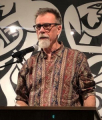
Ivars Balkits
Ivars Balkits’ poetry and prose has been published in (getting-to-be) numerous literary online and print publications and anthologies. He is a recipient of two Individual Excellence Awards from the Ohio Arts Council, for poetry in 1999 and creative nonfiction in 2014. His one-act play "Spirit Band of Mount Nebo" was selected for the 2013 Hodge Podge Reading Series at Arts/West in Athens, Ohio. Ivars works as a writing tutor and course facilitator at Ohio University.


